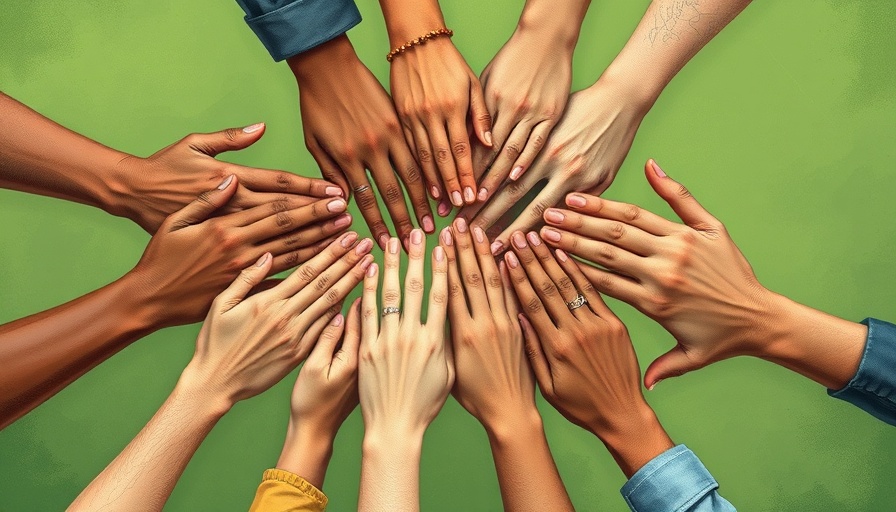
Exploring Mindfulness as a Path to Racial Healing
In today’s world where racial tensions seem to escalate regularly, understanding tools for healing through mindfulness is essential. Tovi Scruggs-Hussein, an influential figure in the mindfulness community, champions a series dedicated to using mindfulness practices to confront the complex issues of race and racism. This approach is not only timely but necessary, as it allows individuals to explore deep-rooted biases and foster emotional intelligence, compassion, and cultural humility.
Cultivating Compassion through Mindfulness
The series invites readers to engage in powerful reflections aimed at healing societal divides. Mindfulness can serve as a foundation for profound conversations about race. As we learn to approach racial discourse with a calm mindset, it creates an environment where transformational growth can occur. This process is about more than just awareness; it requires action and a commitment to personal growth that ultimately impacts the community.
The Role of Guided Meditations in Racial Healing
A crucial element of this series includes guided meditations specifically tailored to the themes of racial awareness and bias. One such meditation encourages participation in honoring our shared humanity. These meditative practices create a space for individuals to reflect on their experiences with race, allowing for a deeper understanding of ingrained prejudices. Guided sessions help participants not only acknowledge but work through their biases, providing healing pathways.
Addressing Internal Emotions: Rage, Grief, and Healing
As explored in the reference from the Momentous Institute, mindfulness plays a critical role in confronting uncomfortable emotions that often accompany discussions about race. When anger and deep-seated grief emerge—as they inevitably will—mindfulness provides the tools to process these emotions constructively. Recognizing rage as a teacher can transform how we approach these feelings, preventing them from driving us into divisiveness.
The Importance of Vulnerability in Conversations
Engaging in discussions surrounding race demands vulnerability. Tovi Scruggs-Hussein emphasizes that confronting these difficult discussions often requires setting aside fear and defensiveness. Mindfulness helps us create a mental space to evaluate our motivations: Are we listening or merely preparing to speak? By fostering clarity of intention, mindfulness paves the way for more productive conversations about race.
Actionable Insights and Growth Opportunities
To genuinely commit to racial healing, individuals are encouraged to utilize the mindfulness practices provided in Scruggs-Hussein’s series. This includes reflection prompts designed to integrate learning into everyday life. By bringing insights into daily interactions, we nurture systemic change. Practicing mindfulness not only paves the way for personal growth but also helps improve societal relations.
Local and Global Perspectives: A Collective Responsibility
Mindfulness for racial healing isn't an isolated process. It echoes the call for collective responsibility within communities to address systemic issues. Everyone has a role to play—whether in individual practice or through communal discussions that prioritize diversity and inclusivity. As the world grapples with significant social challenges, this practice serves as a reminder that change begins within and radiates outward.
Ultimately, as we navigate the complexities of our socio-political climate, embracing mindfulness stands as a beacon of hope. With tools for reflection and a commitment to understanding one another, communities can heal and thrive. Empowerment through mindfulness not only transforms individual lives but collectively shapes a more just society.
 Add Row
Add Row  Add
Add 




 Add Row
Add Row  Add
Add 

Write A Comment